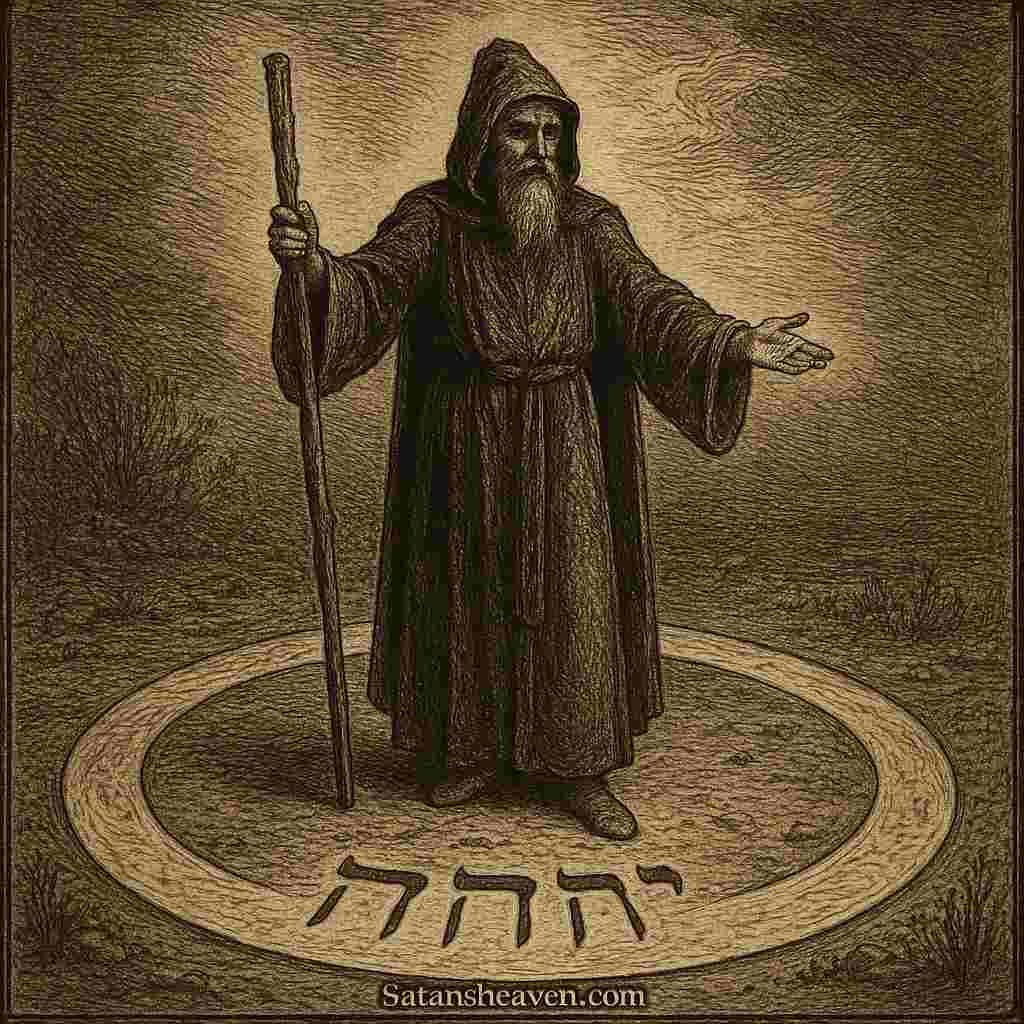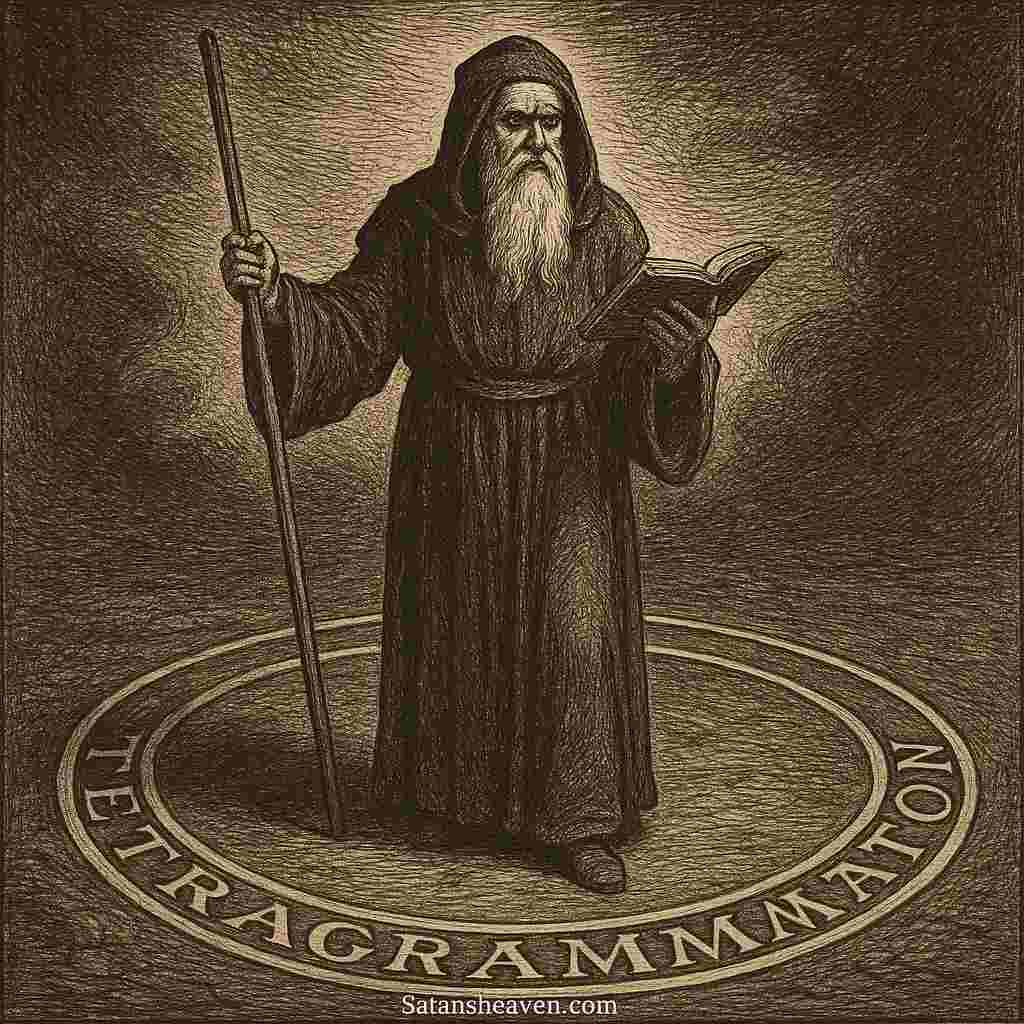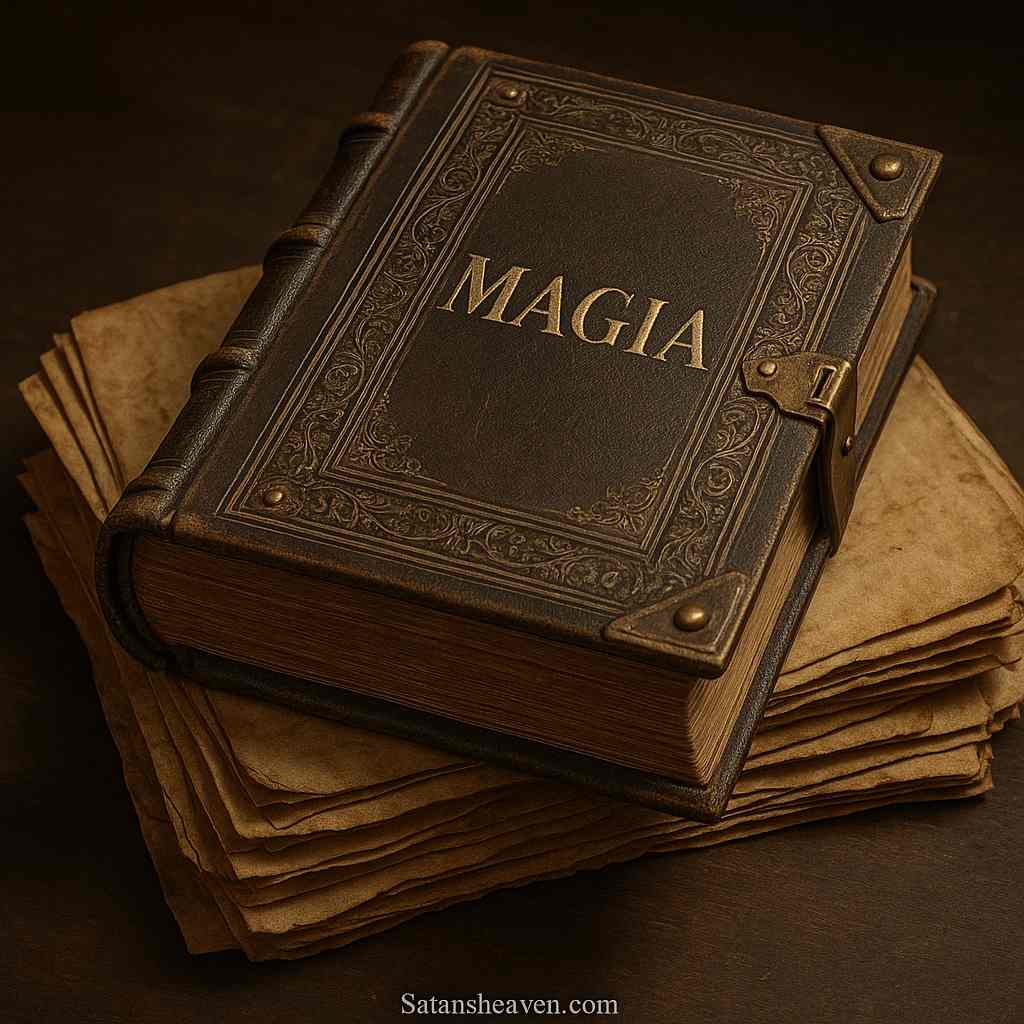Throughout the history of esotericism and occult practices, names of power have held a central and revered place. These names — whether of gods, angels, or demons — are not mere labels. Rather, they are vibrational keys believed to contain and transmit the essence, authority, and spiritual force of the entity they represent. In ceremonial magick, the invocation or chanting of these sacred names plays a critical role in calling forth spiritual powers, constructing magical circles, and commanding supernatural forces.
What Are Names of Power?

In occult traditions, particularly within the Western ceremonial magick framework, names of power are sacred or divine words passed down through ancient grimoires and mystical texts. These names are invoked during rituals, incantations, and evocations to call upon spiritual entities and channel their energy into the ritual space.
Unlike ordinary names, these words are believed to resonate with cosmic vibrations, aligning the practitioner with divine or infernal energies. Whether whispered in solemn devotion or chanted repeatedly in ecstatic frenzy, names of power are used to alter consciousness, open gateways, and command attention from the spiritual realms.
How Names of Power Function in Ritual Magick

During ritualistic practices, especially in evocations and ceremonial magic, the magician may inscribe or recite names of power when casting a magick circle. The repetitive chanting of these names — known as “barbarous words” in some magical traditions — serves multiple purposes:
- Invocation of Divine or Demonic Presence: Uttering a name like Adonai or Asmodeus is believed to activate the essence of that being, summoning it into the magician’s presence.
- Building Energy and Altered States: The rhythmic repetition can induce a trance or ecstatic state, aligning the magician’s inner energy with the invoked power.
- Spiritual Authority and Command: The use of sacred names conveys the practitioner’s right to command, compel, or communicate with spiritual entities, enforcing obedience through the authority of the name.
The Most Powerful Name: The Tetragrammaton

Of all names of power, none holds as much reverence and spiritual authority as the Tetragrammaton — the sacred four-letter name of God in the Hebrew Bible, commonly rendered as YHWH or Yod He Vau He (YHVH). This ineffable name is considered the ultimate key to divine authority, and its use in magick is both feared and revered.
The Tetragrammaton embodies the totality of existence — past, present, and future — and is often used in high rituals to assert control, banish evil, or invoke divine protection. In Qabalistic traditions, it is also deeply linked to the Tree of Life, the four worlds, and the divine emanations known as the Sephiroth.
Other Notable Names of Power

Here are some other significant names of power found in classic grimoires, occult manuscripts, and mystical traditions. Each carries its own unique vibration, spiritual significance, and usage in magickal work:
- Adonai (ADNY) – A Hebrew name for God, meaning “My Lord”
- Ehyeh – “I Am” or “I Will Be,” the name God gave to Moses
- Elohim – A powerful name used to refer to God’s aspect as a creator
- El – A Semitic name for “God” or “The Mighty One”
- Metatron – The name of an archangel and celestial scribe
- Michael – The warrior archangel, often invoked for protection
- Raphael – The healing archangel, associated with air and intellect
- Gabriel – Messenger archangel, tied to water and emotions
- Uriel – Angel of wisdom and fire
- Shaddai – Often translated as “Almighty,” representing divine sufficiency
- Sabaoth – Meaning “Hosts,” a title for God as commander of angelic armies
- Jehovah – A Latinized form of YHWH, often used in Christian magick
- Isis – Ancient Egyptian goddess of magic, motherhood, and healing
- Asmodeus (Asmoedeas) – Demon of lust and one of the infernal kings
- Panthon, Alpha, Omega – Representing the totality of existence and the divine beginning and end
Additional Sacred and Occult Names
Abac, Achides, Achilla, Adam, Agios, Agia, Agnon, Aldal, Aumgn, Beroth, Buseeognation, Cados, Craton, Delgaliel, Derisor, Destatur, Diaton, El Oristan, Eloa, Emmanuel, Gomeh, Guthae, Guthor, Hain, Havayoth, Helim, Hilay, Hudac, lat, Ischyros, Laaval, Ledieha, Lendiction, Lon, Mach, Maton, Melekh, Messias, Milia, Monachiel, Muriton, Noth, Ob, Pentessaron, Radisha, Ruach, Sechiel, Sibylla, Sifton, Sorthie, Sorthios, Sorthis, Tegra, Tistator, Venibbeth, Yah
Each of these names is tied to specific powers, spirits, or divine archetypes, and can be found throughout The Key of Solomon, The Book of Abramelin, The Goetia, and other foundational texts in Western esotericism.
Why Names of Power Still Matter Today
In modern ceremonial magick, Wicca, Hermetic Qabalah, and even chaos magick, names of power continue to be used as gateways to altered consciousness and spiritual influence. Whether pronounced in Hebrew, Greek, Latin, or other ancient languages, these names resonate with centuries of belief, energy, and invocation.
By working with names of power, the practitioner taps into a timeless tradition of mystical communication, accessing archetypal energies that dwell both in the cosmos and in the deep recesses of the psyche.
Conclusion: The Sacred Art of Naming in Magick
In magick, words are not merely symbolic — they are tools of creation and command. The names of power passed down through generations carry not only spiritual significance but a living current of energy. Whether invoking the divine, summoning spirits, or empowering oneself, these sacred names remain vital instruments in the magician’s craft.
By understanding and respecting the force behind each name, the practitioner steps into the lineage of magicians, mystics, and seekers who have used words to shape reality, unlock hidden forces, and transform the soul.

